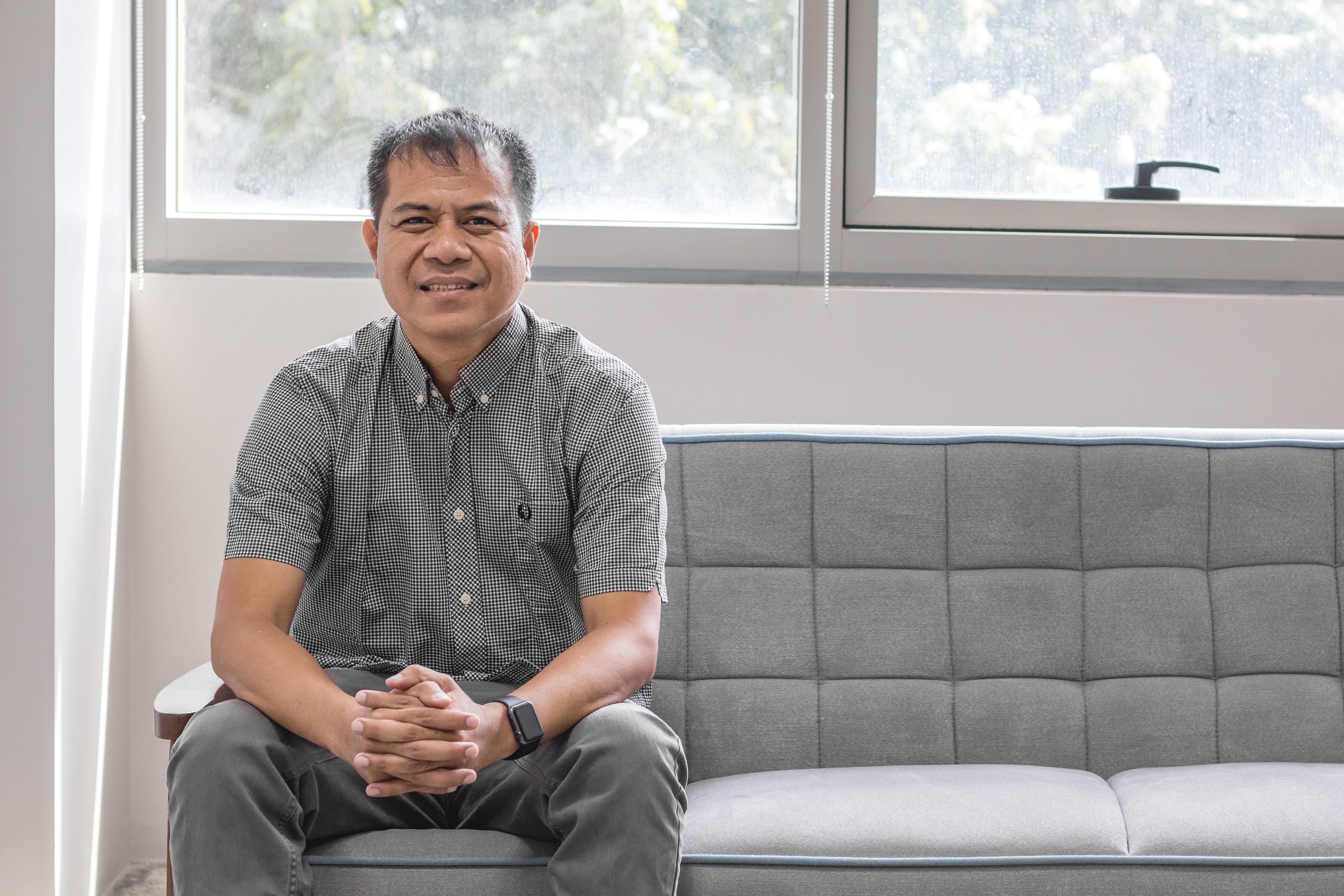
A writer, professor, and advocate, Allan Popa, PhD (Department of Filipino) serves as a creative force to be reckoned with. In collaboration with Heights Ateneo, he is a contributor to Kuwentong Pambata 2019. The project serves as a platform for Lumad children to showcase their culture through art. This is in line with his dream to help Filipino children with their education, as he wields the written word to give a voice to those who need it.
Kung babalikan ang kasaysayan, naging kaalinsabay ang panitikan sa mga panlipunang pagkilos sa panahon ng krisis sa pagtatanghal ng mga tunggaliang panlipunan, pagsusuri sa mga inhustisyang nagaganap, pagpapaalingawngaw ng protesta, at paghikayat ng aksyon. Kaya naman, palagay ko, tungkulin ng manunulat na lagi't laging itanong: Ano ang kabuluhan ng panitikan sa lipunan?
Nang imbitahan ako ng Heights Ateneo para makatulong sa pagbubuo ng mga modyul para sa kanilang proyektong Kuwentong Pambata, hindi ako nagdalawang-isip na tanggapin ang gawain. Nakita ko ito bilang pagkakataon para mapag-isipan kung paano makalikha ng espasyo para makapagpahayag ang isang nasasantabing sektor na dumaranas ng matinding karahasan sa kasalukuyan.
Nabigyan muli ako ng pagkakataon na makapagdaos ng palihan sa pagsulat kasama ang mga estudyante ng Senior High School sa Mindanao State University sa Marawi. Bahagi ito ng programang Artswork ng Fine Arts Department. Muli, kinailangan naming dumaan sa maraming konsultasyon sa iba't ibang NGO [non-governmental organization] at sektor upang makatulong ang kanilang pagsusulat sa pagpoproseso ng kanilang mga danas pagkaraan ng Marawi siege at sa harap ng paghina ng pagpapahalaga ng kabataang Maranao sa katutubo nilang kultura.
Hangga’t maaari, sinisikap kong ipaloob sa mga kursong itinuturo ko ang kasalukuyang mga pinag-iisipan sa mga proyekto ko sa pagtula. Maging ang mga karanasan ko sa ganitong uri ng proyekto ay naibabahagi ko sa mga estudyante at nagsisilbing pagkakataon para lalo naming masuri ang ugnayan ng panitikan, kasaysayan, at bayan, lalo na kung itatambis sa lugar ng panitikan, halimbawa, sa akademya.
Malay ako na marami nang mga estudyante sa Ateneo ang aktibong nakikisangkot sa ganitong mga gawain. Sa mga klase ko naman, halimbawa, sa Malayuning Komunikasyon [FILI 11], sinisikap ko na maglatag ng mga aktibidad upang masimulan nilang pag-isipan ang kaugnayan ng larangang inaaral nila sa unibersidad sa lipunan sa pangkalahatan.
Hinihikayat ko sila na magsaliksik upang higit na maunawaan ang mga suliraning panlipunan na maaaring matugunan ng kanilang pagpapakadalubhasa sa kani-kanilang kurso. Baka sakaling maging simula ito ng higit nilang pakikisangkot at paglilingkod sa sambayanan.
---
If we look back at history, literature has become one with social action during times of crisis in presenting social conflict, evaluating injustices that occur, instigating protest, and encouraging action. This is why, I think, it is the duty of a writer to always ask: What is the significance of literature in society?
When Heights Ateneo invited me to help in creating modules for their Kuwentong Pambata project, I did not hesitate to accept the task. I saw it as an opportunity to think about how to create a space to tell the story of a marginalized sector that is currently experiencing extreme violence.
I was given another opportunity to hold a workshop on writing with the Senior High School students of Mindanao State University in Marawi. This is part of the Artswork program of the Fine Arts Department. Again, we had to go through many consultations with different NGOs and sectors so that their writing could help in processing what they experienced after the Marawi siege and in the face of the decline in Maranao youths’ appreciation for their native culture.
As much as possible, I try to incorporate the current thoughts I have in my writing projects into the courses I teach. Even my experiences in this kind of project have been shared with students and have become opportunities to further examine the relation of literature, history, and country, especially when compared to the area of literature, for example, in academia.
I know that there are many students in Ateneo who are actively involved in such activities. In my class, for example, in Malayuning Komunikasyon, I really try to make activities so that they begin thinking of the connection of their field of study in the university with society as a whole.
I encourage them to research to better understand social problems that can be addressed by their expertise in their respective courses. This will potentially become the start of their heightened involvement and service to society.